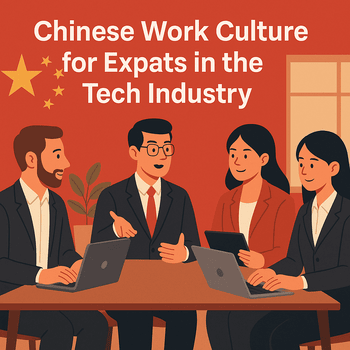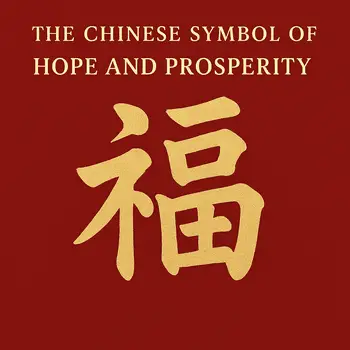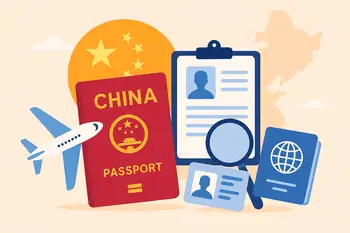
China’s tech sector is a magnet for global talent, offering dynamic opportunities and rapid career growth.
However, the work culture can be complex and, at times, challenging for expats.
This guide goes beyond the basics, providing nuanced insights, practical examples, and up-to-date resources to help you thrive in China’s tech industry.
1. Understanding Relationships (关系 – Guanxi): More Than Networking
“Guanxi” is the web of personal connections that underpins much of Chinese business.
While it can open doors, it can also create barriers for outsiders and sometimes lead to favoritism.
| Aspect | Positive Impact | Potential Challenge |
|---|---|---|
| Building trust | Access to opportunities | Exclusion of newcomers |
| Social events | Stronger team cohesion | Pressure to conform |
| Favors | Faster problem-solving | Nepotism, lack of transparency |
Practical Example:
An expat engineer shared that joining after-work karaoke sessions helped him gain trust, but he also noticed that promotions sometimes favored those with closer personal ties to management.
Further Reading:
The Power of Guanxi: A Strategic Guide to Scaling Your Business in China
2. Hierarchy and Decision-Making: Navigating the Ladder
Chinese workplaces often have clear hierarchies, but the degree varies by company type.
Startups may be flatter, while state-owned enterprises are more rigid.
| Company Type | Hierarchy Level | Decision-Making Style |
|---|---|---|
| State-owned enterprise | High | Top-down |
| Private tech firm | Medium | Mix of top-down and consultative |
| Startup | Low | Collaborative |
Tip:
If you disagree with a decision, request a private meeting rather than raising concerns in public.
Resource:
Chinese Business Hierarchy
3. Teamwork vs. Individualism: Finding Your Place
Team harmony is prized, but some companies are shifting toward recognizing individual contributions, especially in innovation-driven roles.
Case Study:
A product manager at a multinational tech firm in Shanghai found that while team consensus was important, her unique perspective as an expat was valued during brainstorming sessions.
4. Work Hours and the “996” Debate: Know Your Rights
The “996” schedule (9 AM–9 PM, six days a week) is controversial and not universal.
Recent government actions and worker protests have led some companies to adopt more balanced policies.
| Company Type | Typical Hours | Overtime Pay? | Recent Trends |
|---|---|---|---|
| Large tech firms | 996 or 995 | Sometimes | Some moving to 5-day weeks |
| Startups | Varies | Rarely | Flexible, but intense |
| Multinationals | 9–6, 5 days | Yes | Closer to global standards |
Legal Note:
Chinese labor law technically limits overtime, but enforcement varies.
Overview of China’s labor laws
5. Communication Styles: Reading Between the Lines
Indirect communication is common, but tech companies with international teams may be more direct.
Pay attention to context, non-verbal cues, and the “face” (mianzi) concept.
Tip:
When giving feedback, use positive framing and avoid public criticism.
6. Cultural Norms: Beyond the Office
Understanding holidays, taboos, and etiquette is essential.
For example, avoid gifting clocks (symbolizes death) or sharp objects (symbolizes cutting ties).
| Occasion | What to Do | What to Avoid |
|---|---|---|
| Mid-Autumn Festival | Share mooncakes, join celebrations | Gifting clocks |
| Business meals | Wait for host to start, toast | Discussing politics |
Resource:
Business Etiquette in China
7. Technology in the Workplace: Essential Tools
Digital platforms like WeChat, DingTalk, and WeCom are integral for communication and workflow.
| App | Main Use | Note |
|---|---|---|
| Messaging, file sharing | Used for both work and social | |
| DingTalk | Project management | Popular in large companies |
| WeCom | Enterprise messaging | Integrates with WeChat |
Tip:
Respond promptly to work messages, even outside office hours, but clarify your boundaries early.
8. Career Growth: Opportunities and Challenges
China’s tech sector values adaptability, innovation, and cross-cultural skills.
However, expats may face language barriers, visa restrictions, and sometimes a “glass ceiling.”
Networking:
Join local and international tech meetups, such as TechNode.
Legal Resource:
China Work Visa (Z)
Common Challenges and Solutions
| Challenge | Solution/Resource |
|---|---|
| Language barrier | Take Mandarin classes; use translation apps |
| Legal/visa issues | Consult a reputable immigration lawyer |
| Discrimination/bias | Connect with expat support groups |
| Burnout/mental health | Seek counseling; set clear work-life boundaries |
Conclusion
Adapting to Chinese work culture is a journey that requires flexibility, cultural curiosity, and self-advocacy.
By understanding the nuances of guanxi, hierarchy, communication, and legal rights, expats can build rewarding careers in China’s fast-evolving tech landscape.
Stay informed, seek support, and embrace both the challenges and opportunities.


